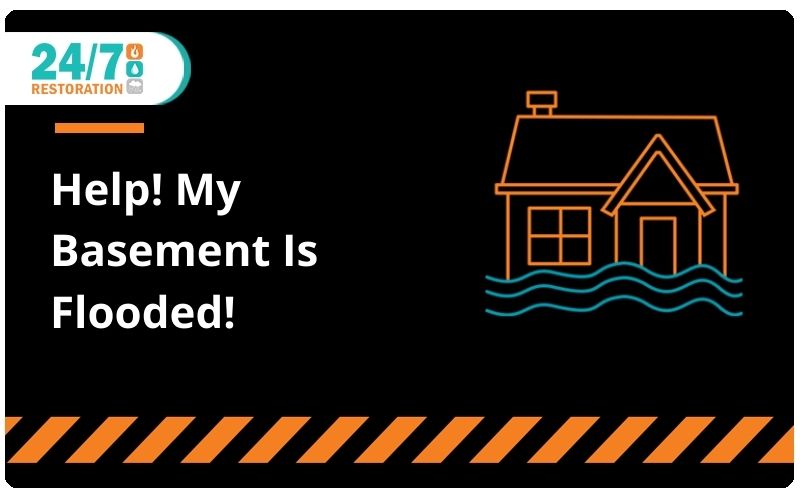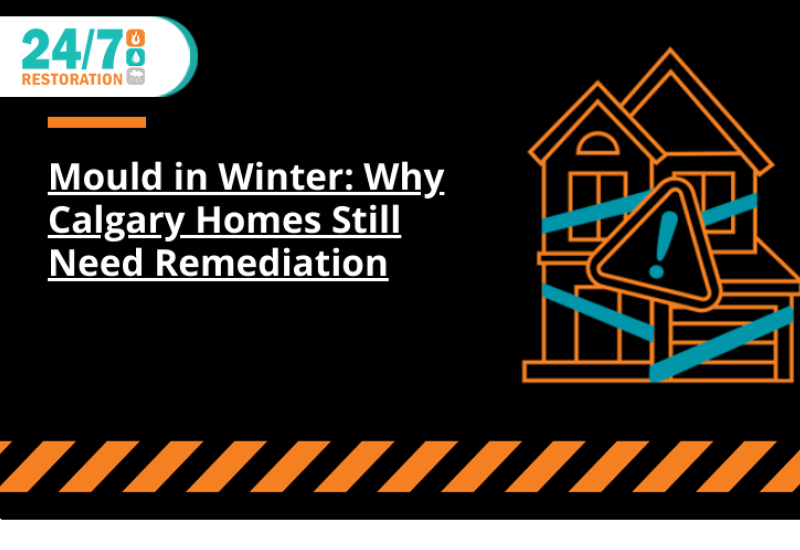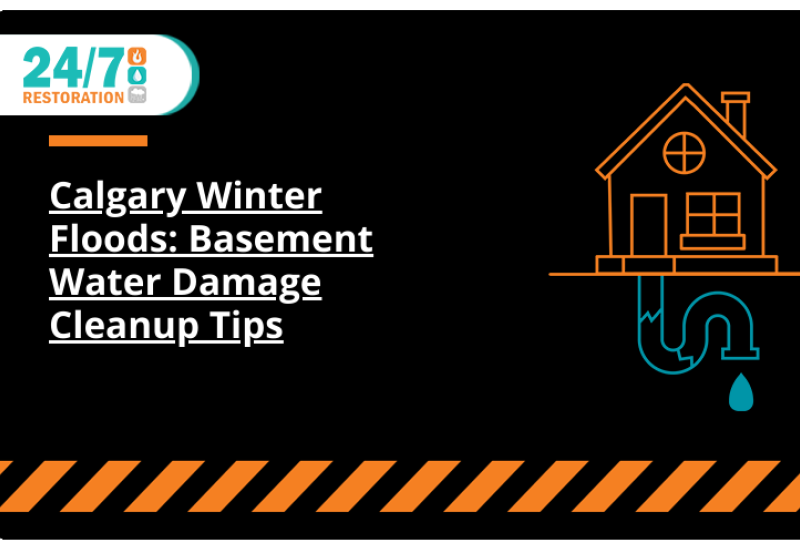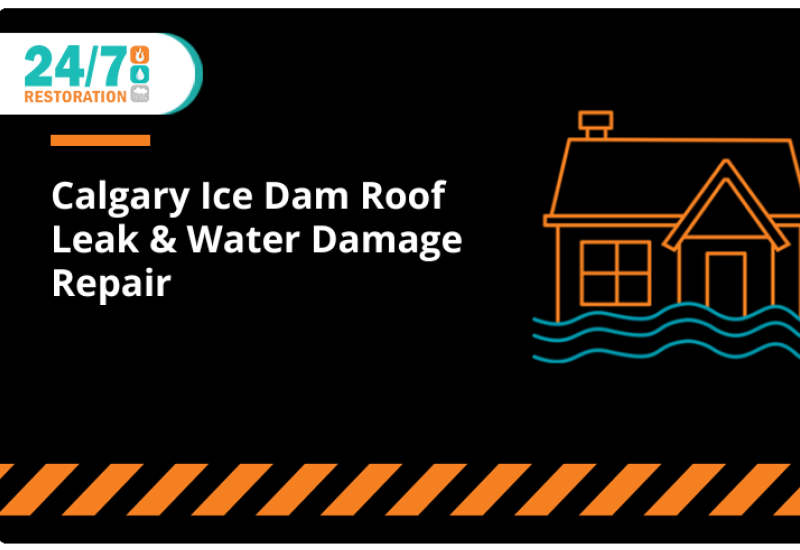Steps To Take When Faced With Flood Damage In Your Basement
Basement flooding can occur unexpectedly. Some common culprits include heavy rainfall, which can overwhelm the drainage system, leading to water seeping into the basement. Faulty or blocked sump pumps can also contribute to flooding. Burst pipes, leaky plumbing, or sewage backups can introduce water into the basement. Improperly graded landscaping, where water flows toward the foundation, can result in basement flooding as well. Structural issues like foundation cracks or inadequate waterproofing can allow water to enter the basement. When faced with basement flooding here is what you should do:
- Assess the Situation and Ensure Safety: The first step when dealing with a flooded basement is to assess the situation carefully. Before entering the area, make sure the electricity is turned off to avoid any risk of electrocution. Be cautious of any potential hazards such as sharp objects or contaminated water. Your safety should be the top priority.
- Identify the Source: Once you're safely inside the basement, try to identify the source of the flooding. It could be a burst pipe, a malfunctioning sump pump, heavy rainfall, or even sewage backup. Understanding the cause will help you address the issue effectively and prevent future incidents.
- Remove Standing Water: Depending on the severity of the flood, you may need to remove standing water from your basement. Use a submersible pump or wet/dry vacuum to extract the water. Be sure to wear appropriate protective gear like rubber boots and gloves while doing this task.
- Dry and Dehumidify: After removing the standing water, it's crucial to dry out the affected area to prevent mold growth and further damage. Open windows and doors to improve ventilation, and use fans and dehumidifiers to speed up the drying process. Consider removing any wet materials, such as carpets or furniture, to aid in the drying process.
- Inspect for Damage: Once the basement is dry, carefully inspect the area for any visible damage. This includes checking the walls, flooring, insulation, and electrical systems. Take pictures or videos of the damage as evidence for insurance purposes.
- Hire a Professional Restoration Company: Dealing with a flooded basement can be overwhelming, and DIY cleanup may not always be sufficient. Hiring a professional flood damage cleanup and restoration company can provide numerous benefits. These experts have the necessary equipment, knowledge, and experience to handle the cleanup process efficiently and effectively. They can also help with insurance claims and ensure that all potential damage is identified and addressed.
- Restoration and Prevention: Once the cleanup process is complete, a professional restoration company can assist you in restoring your basement to its pre-flood condition. They will repair any structural damage, replace damaged materials, and conduct thorough inspections to ensure there are no hidden issues. They can also provide advice on preventative measures to avoid future flooding incidents.
For Flood Damage Cleanup Call Us, 24/7
Facing a flooded basement is undoubtedly a stressful experience, but taking prompt action and enlisting the help of a professional flood damage cleanup and restoration company can make all the difference. Their expertise and specialized equipment will not only mitigate the flood damage but also ensure the safety of your home and your loved ones. Remember, it's essential to act quickly and prioritize your safety when dealing with a flooded basement. With the right professional assistance, you can restore your basement to its original state and regain peace of mind.
Whatever the cause of your flood, a restoration company cleanup crew can quickly and professionally control and remediate the area. If your pipe bursts, your home is flooding due to the spring thaw, or a winter storm is causing water backup, call 24/7 Restoration any time, night or day, on our emergency line for immediate services. Our expert cleanup crew will remove all damage and restore your home to pre-flood conditions. If you have any questions contact 24/7 Restoration by filling out the online contact form, and for immediate assistance, call us at 1-403-247-4365.
FAQ
Q: Is there any way to guarantee my basement won’t flood?
A: There are preventive steps you can take to reduce the risk of flood damage: shovel snow away from your house, remove snow and ice, clear the drains, and check your sump pump. These are all great preventative measures but there’s no way to guarantee your house won’t flood. Having a sump pump with a secondary power source and knowing the 24/7 Restoration team is accessible and responsive 24 hours a day, 7 days a week can help put your mind at ease.
Q: Can I handle basement flooding cleanup on my own?
A: While it's possible to handle minor basement flooding on your own, it's recommended to seek professional assistance for significant incidents. Professional flood damage cleanup and restoration companies have the necessary expertise, equipment, and experience to handle the cleanup process efficiently and effectively. They can ensure proper water extraction, thorough drying, and address any structural damage or potential mold growth. Moreover, professionals can provide guidance on insurance claims and offer preventative measures to avoid future flooding. Investing in professional assistance ensures a thorough restoration and minimizes the risk of further damage or health hazards.
Q: How can I prevent basement flooding in the future?
A: Preventing basement flooding involves taking proactive measures. Here are a few tips to help prevent future incidents:
- Maintain your gutters and downspouts: Clean them regularly to ensure proper water flow and direct water away from your foundation.
- Grade your landscaping: Ensure that the ground slopes away from your foundation to prevent water accumulation near your basement walls.
- Install a sump pump: A properly functioning sump pump can help remove water from your basement and prevent flooding.
- Waterproof your basement: Consider applying sealants or coatings to your basement walls and floors to create a barrier against water infiltration.
- Regularly inspect plumbing: Check for leaks, cracks, or any signs of damage in your plumbing system, and address issues promptly.
- Install a backwater valve: This valve prevents sewage from backing up into your basement during heavy rainfall or sewer system overloads.
- Consider a battery backup for your sump pump: It ensures that the pump continues to work during power outages, which often occur during storms.
By implementing these preventative measures, you can significantly reduce the risk of basement flooding and protect your property from water damage.




